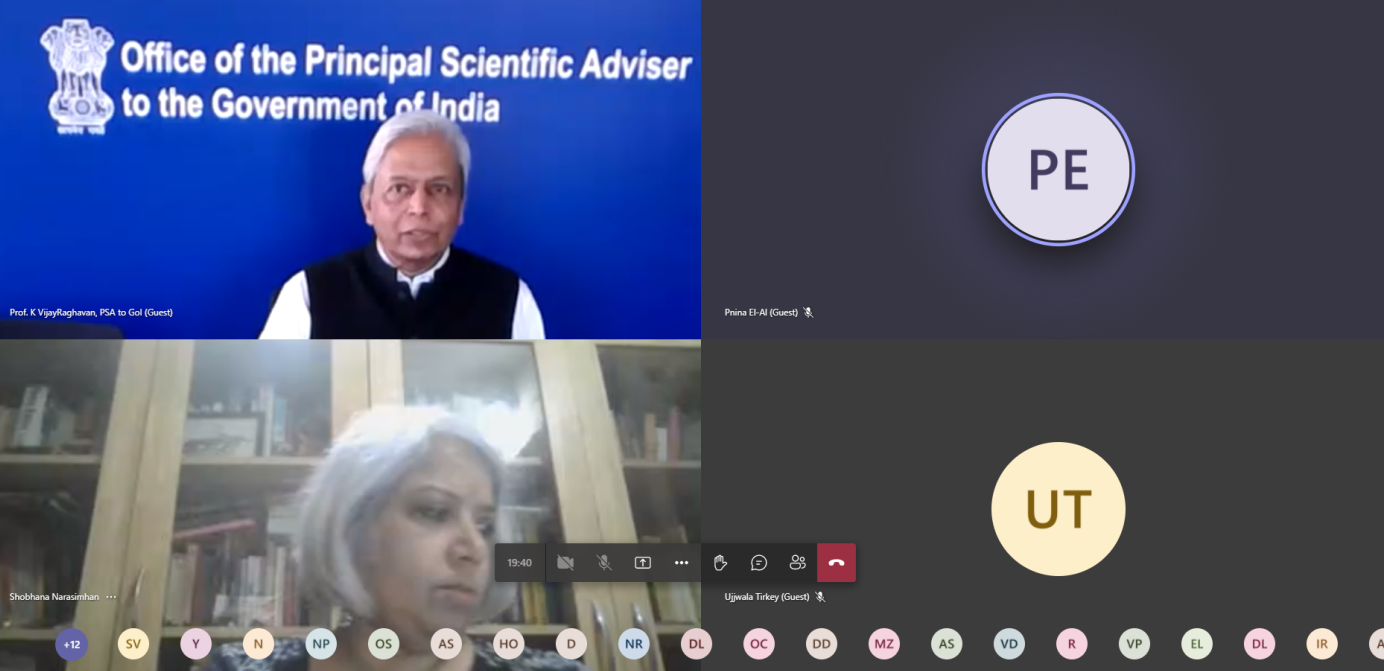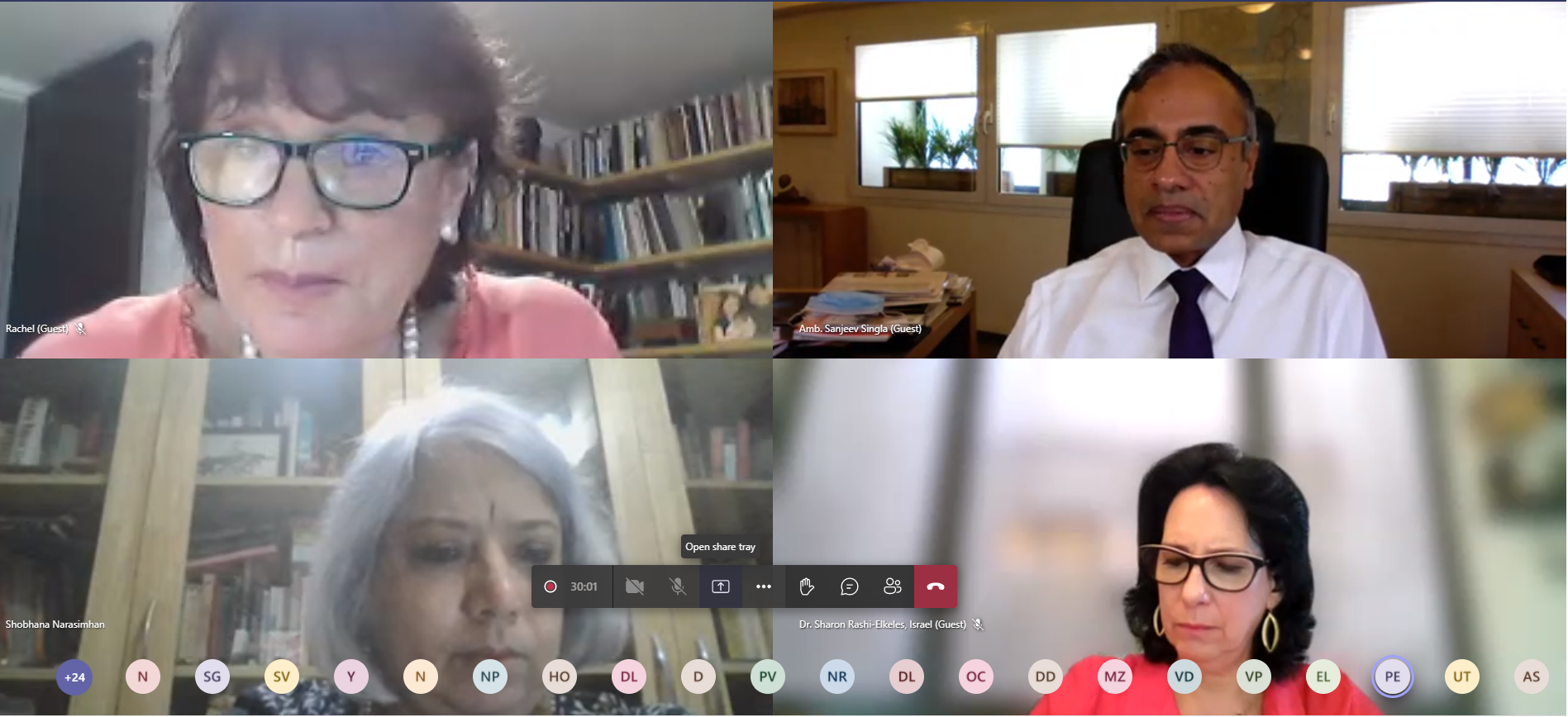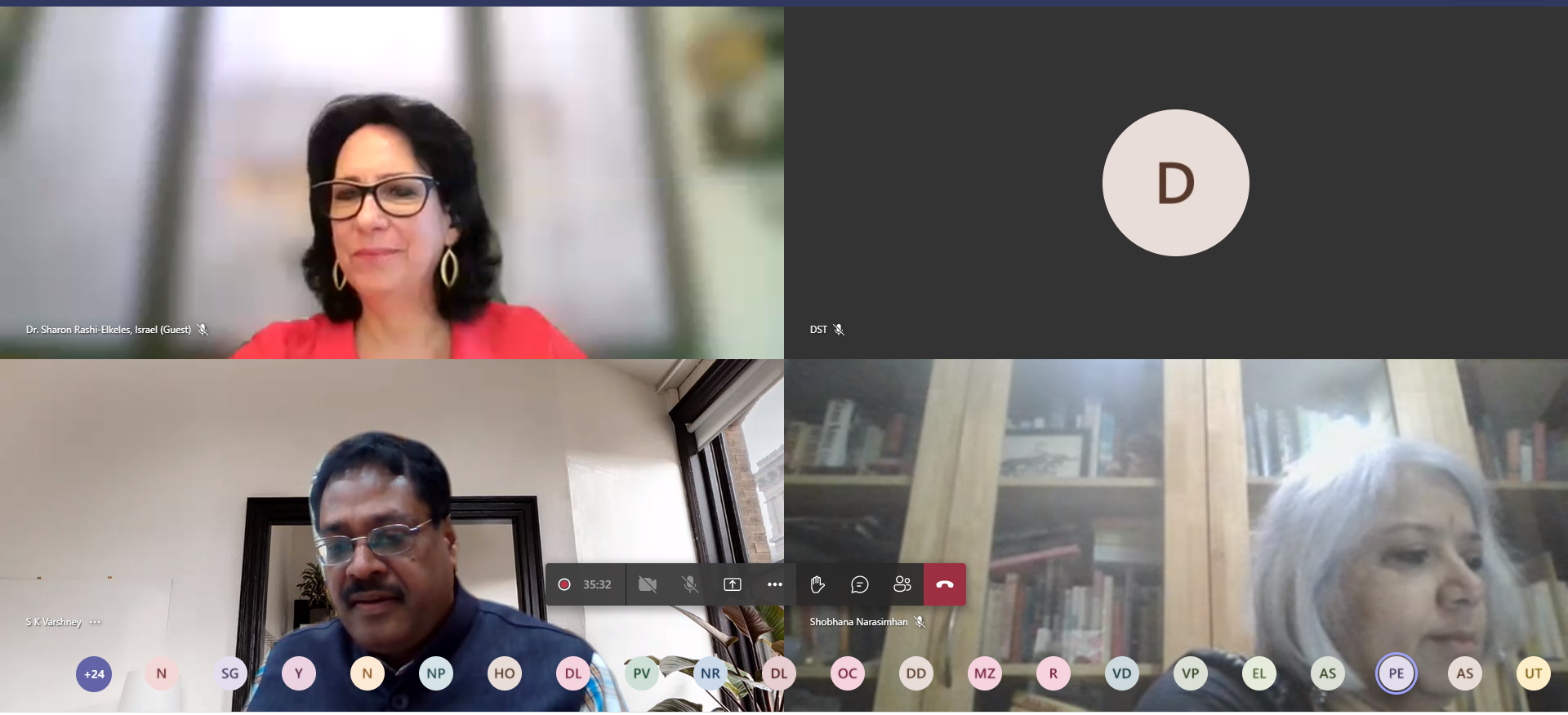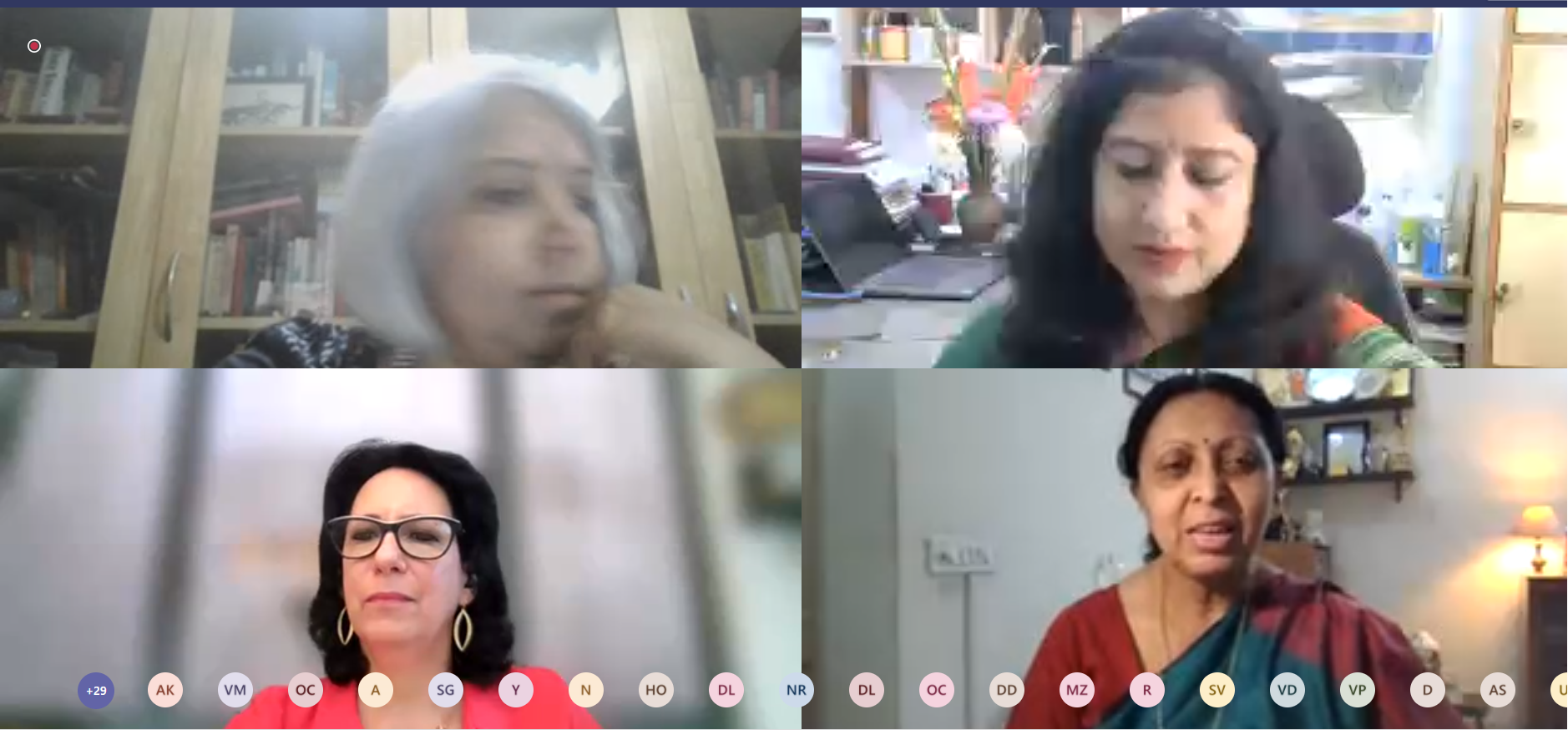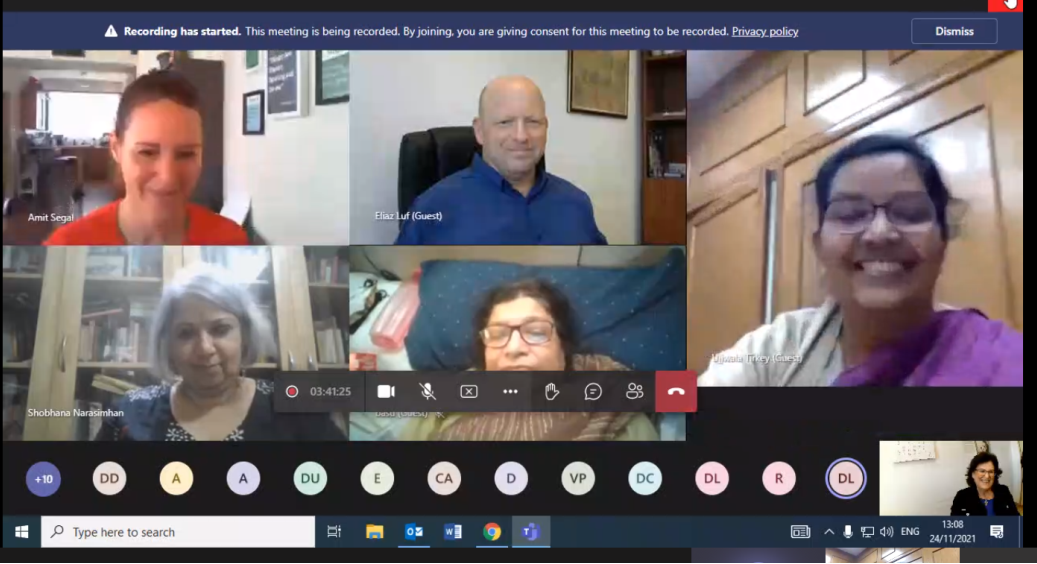Experts from India and Israel highlighted the need for changes in the socio-cultural environment while deliberating on ways of achieving gender parity in the field of Science, Technology, Engineering and Mathematics (STEM) at the conference on India-Israel Women in STEM on November 24, 2021.
“There are 3 main issues about lesser women participation in STEM fields which have existed historically across millennia-- how well S&T has translated into the economic sphere and how our institutions are structured. S&T could become a changemaker in society by introducing flexible work times, and gender-neutral pays to enhance women participation in STEM,” Prof. K. VijayRaghavan Principal Scientific Adviser to the Government of India, highlighted at the conference jointly organized by the Department of Science & Technology (DST) Govt. of India and Ministry of Innovation, Science and Technology (MOIST), Israel.
Dr Gaya Loren, Deputy Chief Scientist, Ministry of Innovation, Science & Technology, Israel, said that Israel Innovation Authority sees increased women participation in tech fields as an investment for the country’s advancement in the future and noted that initiative of joint conference could be a guiding platform in this direction.
His Excellency Sanjeev Singla, Ambassador of India to Israel, pointed out that India being one of the world’s largest scientific pools has been taking encouraging steps for incentivizing women to pursue a career in STEM. The two countries with a history of successful collaboration can bridge the gender in STEM, he added at the online conference.
“Greater women’s participation in the tech sector will make women more strong and influential, giving a boost to their socio-economic situation in the society,” His Excellency Naor Gilon, Ambassador of Israel to India, stressed at the conference titled India-Israel Women: Sharing Ideas & Initiatives.
“There are areas in science which have seen remarkable progress in women participation; however, areas like Physics, Engineering and Mathematics need a course correction,” Dr SK Varshney, Adviser, DST, remarked. He highlighted few major programmes of the DST, which aim to bring back women who opted out from science fields to science. They also give incentives to women scientists, promote women entrepreneurship as well as encourage gender balance in institutions.
Dr Nisha Mendiratta, Adviser, DST, said that one of the major issues regarding women’s participation in STEM fields is gendered brain-drain in STEM. This was reported by UNESCO in 2019 and is also evident in the gender gap at higher studies in science, particularly at the doctorate and post-doctorate levels. She further mentioned that society, system (Government policy), support from family and work area and self-motivation could help enable women empowerment.
Dr Renu Swarup, former Secretary DST and Department of Biotechnology (DBT), emphasized on greater focus on socio-cultural environment change for empowering women in STEM fields. “The two governments need to play a major role in generating enablers to allow greater women’s participation like joint programmes that connect incubation centres in the two countries and setting up incubation centres just for women,” she added.
Ms Hilla Ovil Brenner and Keren Hod from Israel shared their entrepreneurship experience. They highlighted the need for driving women to reach their full potential as entrepreneurs by providing them with suitable tools and guidance.
Prof. Vaishnavi Ananthanarayanan from India and Prof. Rachel Erhard from Israel talked about ways for bridging gender gap in Academia, Nandita Jayaraj, Dr Avital Beck, Dr Maitri Gopalakrishna, Rinat Shafran, Dr Manal Haj Zarobi, Orit Hershtig- Cohen, Prof. Shobhana Narasimhan, and Dr Ujjwala Tirkey also talked about their respective journeys.
